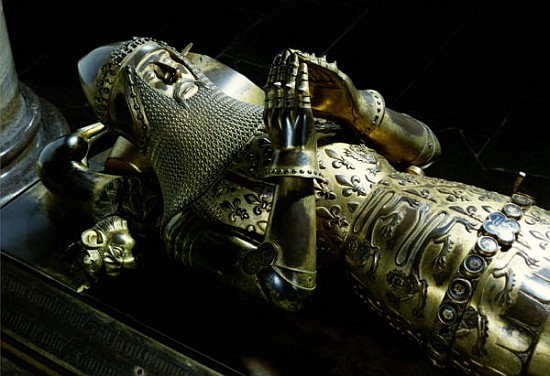
On 8th June 1376, Edward, the Black Prince, died. From then until 29th September his body lay in state in Westminster Hall, and then was taken to Canterbury Cathedral to be buried on 5th October at Canterbury Cathedral.
His passing was greatly mourned through the land, and lamented because the elderly monarch, Edward III, was no longer the man he had once been, and the new heir was a little boy, the eventual Richard II. Not a satisfactory situation, with the prospect of a minority rule, with all the dreadful prospects that entailed.
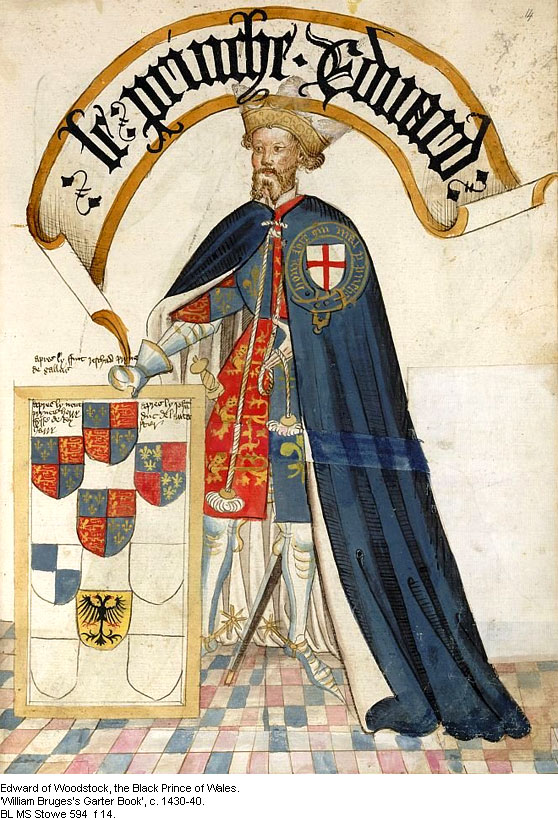
No one knows why Prince Edward was nicknamed the Black Prince (or when) but if something said at the time, by the then Archbishop of Canterbury, Simon Sudbury, can be taken at face value, it wasn’t because the Black Prince was of dark colouring. Sudbury said that although Edward was dead, he had left behind a fair son, his very image, as heir apparent. Right, before you all rush to draw my attention to the ambivalence of the word “fair”, let me point out that I did mention something about “face value”. So, if Sudbury was speaking of colouring, and linking father with son (Richard II), dark doesn’t enter into it. We all know Richard II was fair, as in blond, with a complexion that flushed easily.
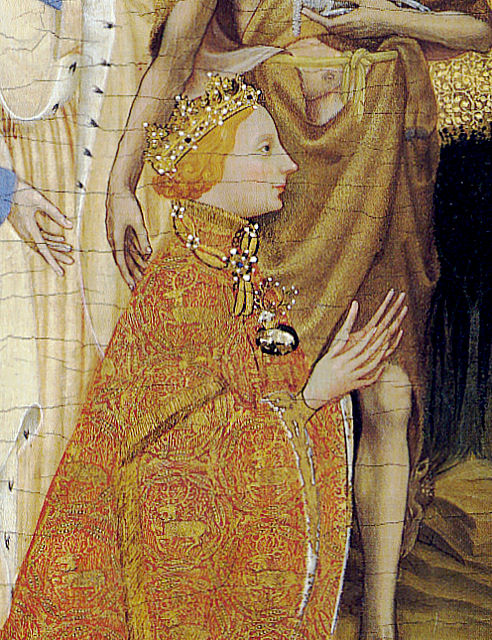
Edward was idolized in his lifetime, and there was really only one thing that has always marred and dogged (blackened?)his reputation. That was at the sack of Limoges on 19th September 1370, when Edward was the ruler of Aquitaine. He is accused of ordering the slaughter of 3,000 inhabitants, and has always been vilified for this. Yet in every other way he was lauded and admired.
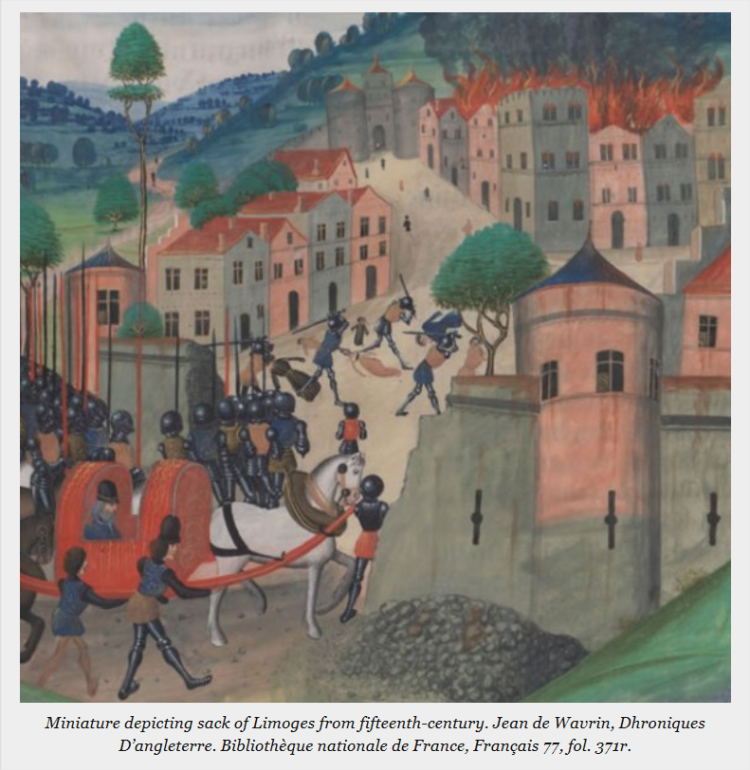
However, it now seems that new evidence has come to light in France, from a French chronicle, that it wasn’t the English who committed the massacre, but the French themselves, who were enraged because Limoges supported the English.
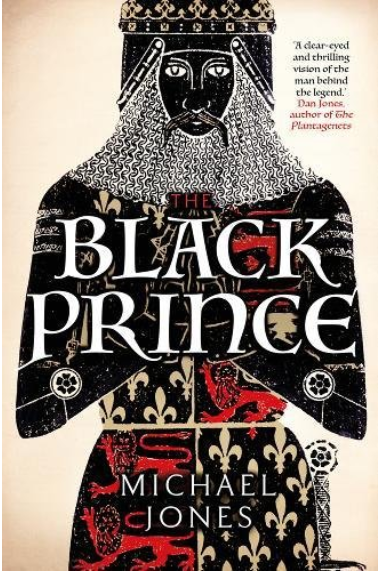
This new information has been brought to light in Black Prince, a new biography by Michael Jones. To read more about the discovery (and decide whether or not to spend the published price of £30 to read the book itself – cheaper elsewhere, e.g. Amazon) please go here .
.
Now, having said all that, I am pleased that new sources do appear from time to time, no matter how many centuries pass. So I have not given up hope that old documents, chronicles and rolls will turn up out of nowhere, proving that Richard III wasn’t guilty of all the crimes of which he’s accused. Not least the murder of his nephews. It’s waiting somewhere, folks. Don’t despair!

6 comments